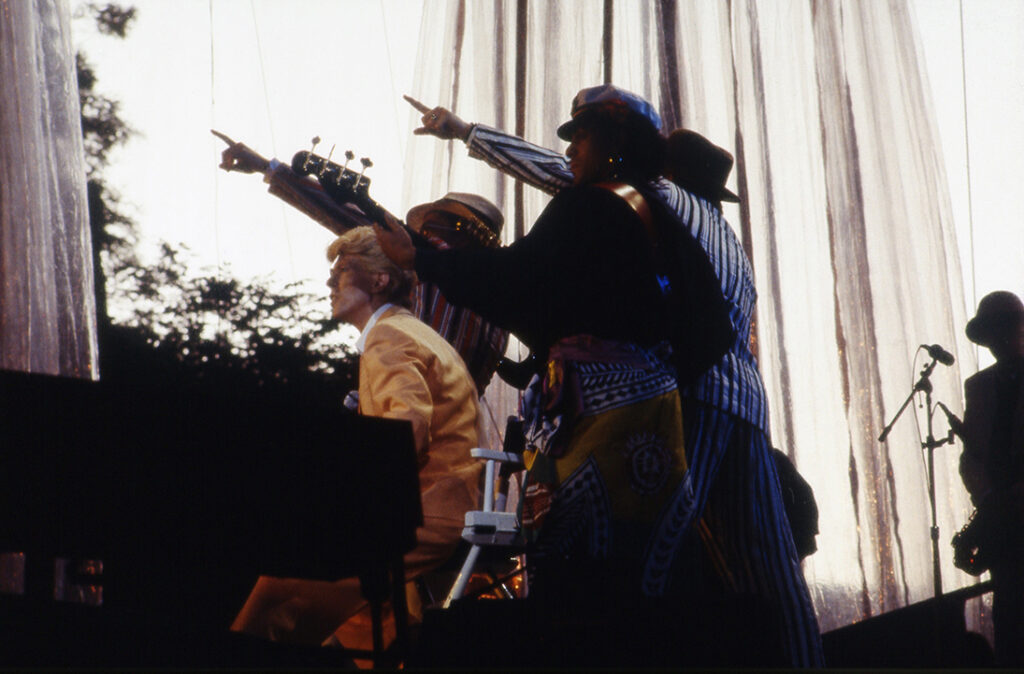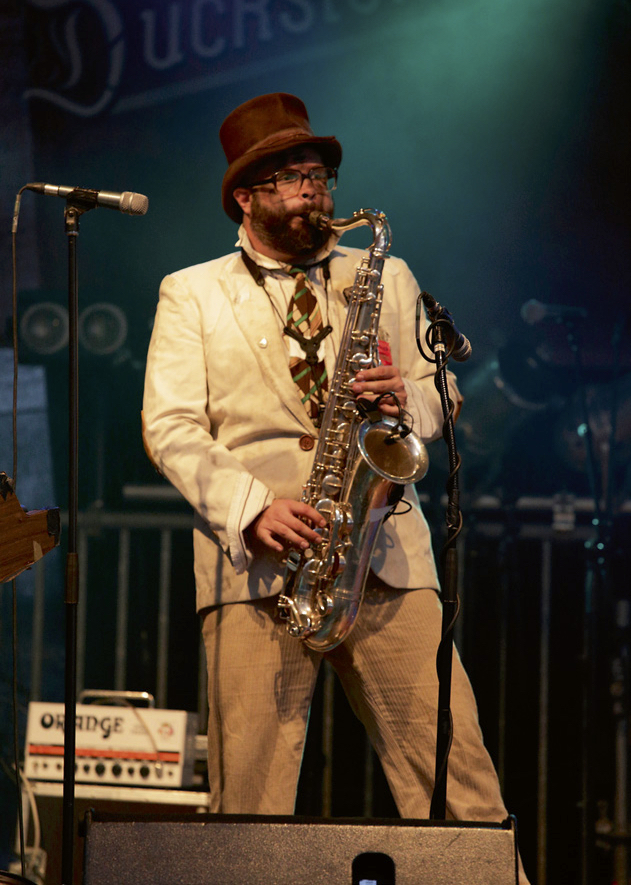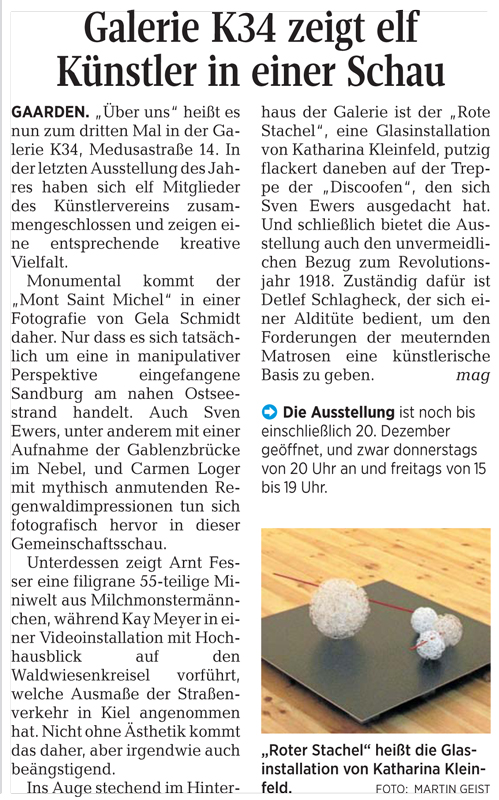Vom 11. April 2019
Video: svenne | kiel 2019
Vom 11. April 2019
Video: svenne | kiel 2019
Viktor Braun – Fotografie
Vernissage: Sa., 7.9.2019 ab 19°° h
Musik: Überraschung
Öffnungszeiten: Do. 20°° – 0°° h
Finissage: Freitag, 4.10.2019
Ausstellungsort: K34-Galerie, Medusastr. 14, 24143 Kiel
Viktor Braun – Kontakt:
Website: www.v-zero.de
E-Mail: viktor@v-zero.de
Viktor Brauns Künstlerseite:
https://k34.org/kuenstler/viktor-braun/


Text und Foto: Martin Geist

Text und Foto: Martin Geist – mag
Malerei
Markus Armbrecht
Reino Kalz
Florian Städtler
Wir freuen uns über das große Interesse an Katharina Kleinfelds Ausstellung „Wortgewand“ und zeigen hier ein paar Impressionen. Die Ausstellung läuft noch bis 9. November in der Galerie K34.
Fotos: Gela Schmidt
6767 ist das neue Jahr im Assyrischen Kalender. Genau am 1. April jeden Jahres. In der Assyrischen Sprache auch als „Akitu“ bekannt.
Im dritten Jahrhundert vor Christus, als Seleukos eine Stadt namens Latakia erbauen wollte, brachte er dem Gott Zeus Opfergaben, damit dieser einen passenden Ort auswählte, so „wie es zu dieser Zeit üblich war“. Und zufällig flog ein Adler über den Ort der Opfergabe, nahm den Kadaver und flog aus dem Blick von Seleukos und seinen Soldaten, die glaubten, dass dies der Wille Gottes ist. Sie verfolgten ihn, bis sie ihn ganz oben auf einem steinigen Küstenabschnitt erreichten.
Dort, angegriffen von einem Wildschwein, wurden der Befehlshaber und seine Männer gezwungen diesem entgegenzutreten und es zu töten. Als sie es entleerten, stellten sie fest, dass der Adler nicht vorhanden war. Sie konnten ihn nicht fangen.
Seleukos erkannte, dass nach dem göttlichen Willen die Stadt namens Latakia auf diesem Kap erbaut werden sollte und benannte die Stadt Laodessa nach dem Namen seiner Mutter.
Um die Genugtuung der Götter zu erlangen, opferte Seleukos ein wunderschönes Mädchen mit dem Namen Agape „der Name einer der Meeresgöttinen der griechischen Mythologie“. Und er befahl eine goldene Statue von ihr zu gießen, um der Stadt Glück und Zufriedenheit zu bringen.
Ins Deutsche übersetzt nach Ioannis Malalae (491-578), einem byzantinischen Chronist aus Antiochia am Orontes.
In the third century BC, when Seleucus wanted to build a city of Latakia, he gave offerings to the god Zeus to choose his appropriate place „as usual at that time“, and coincidences that an eagle flew over the place in which it made the sacrifice, and picked up the carcass and flew out at the sight of Seleucus and his soldiers who believed that is the will of God, they chased him until it reached them up to the top of a rocky stretch in the sea.
Where they were been attacked by a wild boar, the commander and his men were forced to confront and kill it, and when they emptied it, they found the eagle missed, they could not catch it. Seleucus considered that the divine will wants to build the city of Latakia on this cape and then he called the city laodessa, by his mother’s name.
In order to gain the satisfaction of the gods Seleucus sacrificed a beautiful girl. Her name was Agápē „the name of one of the goddesses of the sea in the Greek mythology „, and he ordered to cast a golden statue of her to bring luck and happiness to the city.
Ioannis Malalae c. 491 – 578, a Byzantine chronicler from Antioch.
Durch die weitere Nutzung der Seite stimmst du der Verwendung von Cookies zu. Weitere Informationen
Die Cookie-Einstellungen auf dieser Website sind auf "Cookies zulassen" eingestellt, um das beste Surferlebnis zu ermöglichen. Wenn du diese Website ohne Änderung der Cookie-Einstellungen verwendest oder auf "Akzeptieren" klickst, erklärst du sich damit einverstanden.